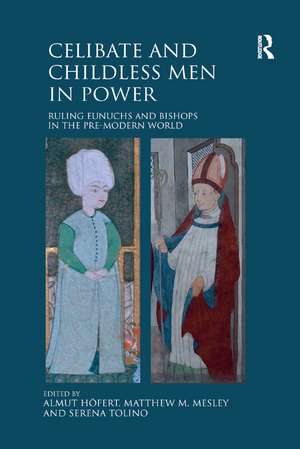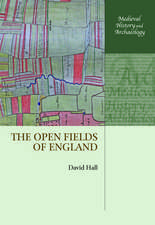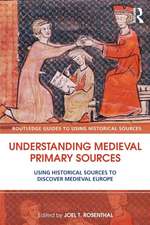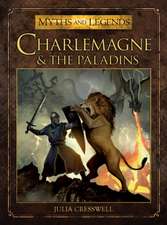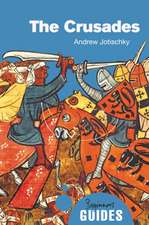Celibate and Childless Men in Power: Ruling Eunuchs and Bishops in the Pre-Modern World
Editat de Almut Höfert, Matthew Mesley, Serena Tolinoen Limba Engleză Paperback – 12 dec 2019
| Toate formatele și edițiile | Preț | Express |
|---|---|---|
| Paperback (1) | 389.66 lei 6-8 săpt. | |
| Taylor & Francis – 12 dec 2019 | 389.66 lei 6-8 săpt. | |
| Hardback (1) | 1000.27 lei 6-8 săpt. | |
| Taylor & Francis – 15 aug 2017 | 1000.27 lei 6-8 săpt. |
Preț: 389.66 lei
Nou
Puncte Express: 584
Preț estimativ în valută:
74.56€ • 76.92$ • 62.22£
74.56€ • 76.92$ • 62.22£
Carte tipărită la comandă
Livrare economică 27 martie-10 aprilie
Preluare comenzi: 021 569.72.76
Specificații
ISBN-13: 9780367880569
ISBN-10: 0367880563
Pagini: 376
Dimensiuni: 156 x 234 x 20 mm
Greutate: 0.45 kg
Ediția:1
Editura: Taylor & Francis
Colecția Routledge
Locul publicării:Oxford, United Kingdom
ISBN-10: 0367880563
Pagini: 376
Dimensiuni: 156 x 234 x 20 mm
Greutate: 0.45 kg
Ediția:1
Editura: Taylor & Francis
Colecția Routledge
Locul publicării:Oxford, United Kingdom
Cuprins
Introduction: Celibate and Childless Men Placed into a Shared Focus: Ruling Eunuchs and Bishops Between the Intersections of Power, Networks, Sacredness and Gender
[Almut Höfert]
Part 1: Bishops and Eunuchs as Parts of the Ruling Elites
1. The Bishop in the Latin West 600–1100
[Julia Barrow]
2. Guarding the Harem, Protecting the State: Eunuchs in a Fourth/Tenth Century ʿAbbasid Court
[Nadia Maria El Cheikh]
3. Muʾnis al-Muẓaffar: An Exceptional Eunuch
[Hugh Kennedy]
4. Harem and Eunuchs: Liminality and Networks of Mughal Authority
[Ruby Lal]
Part 2: Networks and Kinships
5. Celibate, But Not Childless: Eunuch Military Dynasticism in Medieval China
[Michael Hoeckelmann]
6. Spiritual Heirs and Families: Episcopal Relatives in Early Medieval Francia
[Rachel Stone]
7. Eunuchs and the East India Company in North India
[Jessica Hinchy]
Part 3: Religious Authority and Sacredness
8. Physical and Symbolic Castration and the Holy Eunuch in Late Antiquity, Third to Sixth Centuries CE
[Mathew Kuefler]
9. Monastic Superiority, Episcopal Authority and Masculinity in Caesarius of Heisterbach’s Dialogus Miraculorum
[Matthew M. Mesley]
10. The Chief Harem Eunuch of the Ottoman Empire: Servant of the Sultan, Servant of the Prophet
[Jane Hathaway]
Part 4: Gender and Masculinities
11. Byzantine Court Eunuchs and the Macedonian Dynastie (867–1056): Family, Power and Gender
[Shaun Tougher]
12. Eunuchs in the Fatimid Empire: Ambiguities, Gender and Sacredness
[Serena Tolino]
[Almut Höfert]
Part 1: Bishops and Eunuchs as Parts of the Ruling Elites
1. The Bishop in the Latin West 600–1100
[Julia Barrow]
2. Guarding the Harem, Protecting the State: Eunuchs in a Fourth/Tenth Century ʿAbbasid Court
[Nadia Maria El Cheikh]
3. Muʾnis al-Muẓaffar: An Exceptional Eunuch
[Hugh Kennedy]
4. Harem and Eunuchs: Liminality and Networks of Mughal Authority
[Ruby Lal]
Part 2: Networks and Kinships
5. Celibate, But Not Childless: Eunuch Military Dynasticism in Medieval China
[Michael Hoeckelmann]
6. Spiritual Heirs and Families: Episcopal Relatives in Early Medieval Francia
[Rachel Stone]
7. Eunuchs and the East India Company in North India
[Jessica Hinchy]
Part 3: Religious Authority and Sacredness
8. Physical and Symbolic Castration and the Holy Eunuch in Late Antiquity, Third to Sixth Centuries CE
[Mathew Kuefler]
9. Monastic Superiority, Episcopal Authority and Masculinity in Caesarius of Heisterbach’s Dialogus Miraculorum
[Matthew M. Mesley]
10. The Chief Harem Eunuch of the Ottoman Empire: Servant of the Sultan, Servant of the Prophet
[Jane Hathaway]
Part 4: Gender and Masculinities
11. Byzantine Court Eunuchs and the Macedonian Dynastie (867–1056): Family, Power and Gender
[Shaun Tougher]
12. Eunuchs in the Fatimid Empire: Ambiguities, Gender and Sacredness
[Serena Tolino]
Notă biografică
Almut Höfert is Professor for Medieval Transcultural History at the University of Zurich.
Matthew M. Mesley is a Visiting Fellow at the University of Huddersfield.
Serena Tolino is Junior Professor for Islamic Studies at the University of Hamburg.
Matthew M. Mesley is a Visiting Fellow at the University of Huddersfield.
Serena Tolino is Junior Professor for Islamic Studies at the University of Hamburg.
Descriere
This collection explores the ways in which groups of men in a variety of pre-modern cultures were excluded from legitimate or physical reproduction, yet still remained an important feature of political systems based on dynasties. In bringing eunuchs and bishops into a common focus, this volume offers a new global perspective, which draws parallels
